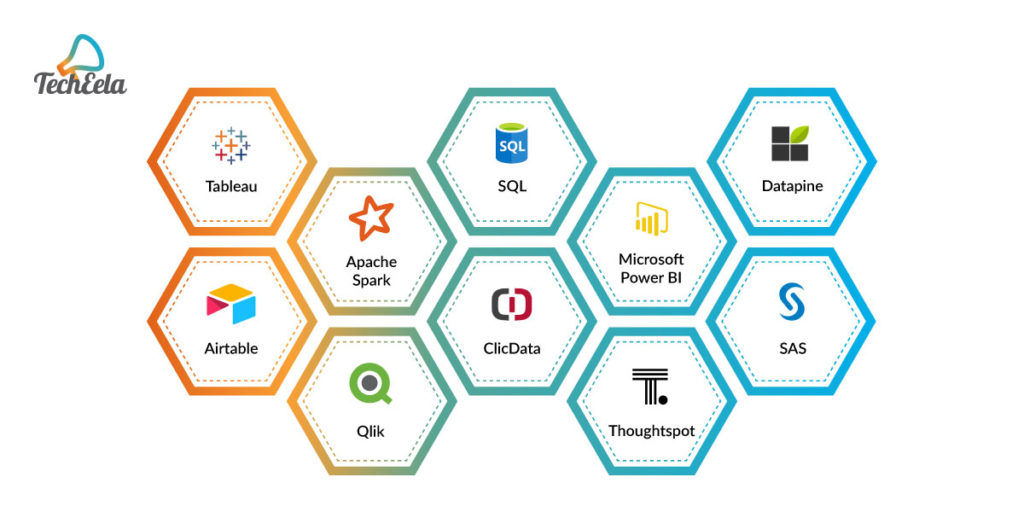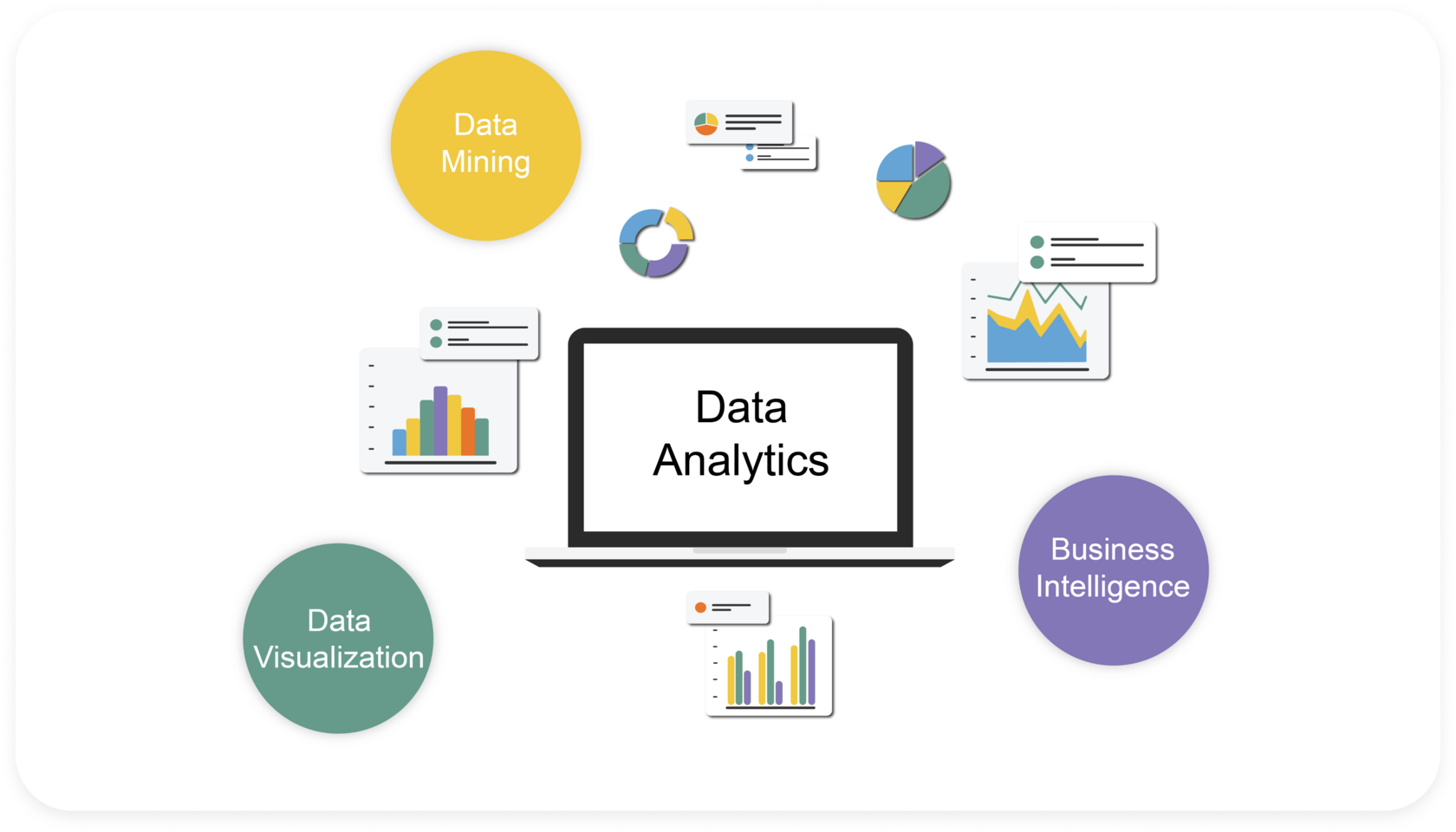Improve Client Understanding with Targeted Analytics Versions
Improve Client Understanding with Targeted Analytics Versions
Blog Article
Increase Performance and Profitability Through Data Analytics
In today's data-driven landscape, organizations are progressively acknowledging the pivotal duty of data analytics in improving functional efficiency and productivity. By systematically examining data, companies can reveal important understandings that notify critical decisions, improve procedures, and tailor client experiences.
Comprehending Information Analytics
In today's data-driven landscape, understanding information analytics is vital for companies aiming to enhance operational efficiency and drive earnings. Data analytics entails the organized computational evaluation of information sets to reveal patterns, correlations, and insights that inform decision-making. By utilizing numerous techniques, such as statistical analysis, maker understanding, and predictive modeling, organizations can transform raw information into workable knowledge.
The procedure commonly begins with data collection, where relevant information is gathered from multiple sources, including transactional databases, customer interactions, and market trends. This data is then cleaned and organized to ensure accuracy and consistency. Once the data is prepared, analytical devices and software are utilized to imagine the info and explore, enabling stakeholders to identify abnormalities and patterns.
Eventually, comprehending data analytics empowers companies to make enlightened choices based on empirical evidence instead than intuition. It helps with targeted strategies that can maximize source allowance, enhance customer satisfaction, and improve general performance. As organizations significantly acknowledge the value of data-driven understandings, a solid grasp of information analytics ends up being an important proficiency for groups and leaders alike, positioning them for continual success in an affordable environment.

Key Benefits for Businesses
Businesses that take advantage of information analytics can unlock a wide range of benefits that dramatically improve their procedures and profitability. One of the main advantages is enhanced decision-making. Information analytics gives actionable understandings stemmed from real-time information, enabling businesses to make educated choices that line up with market needs and consumer preferences.

Additionally, data analytics cultivates enhanced client experiences. By comprehending consumer behaviors and preferences, businesses can tailor their offerings, causing raised satisfaction and commitment. This individualized strategy usually results in greater conversion rates and repeat service.
Additionally, information analytics makes it possible for organizations to recognize arising possibilities and fads. By remaining in advance of the curve, organizations can take advantage of on new markets and developments before their rivals.
Implementing Data-Driven Methods
Successful implementation of data-driven strategies calls for a thorough understanding of both business goals and available information resources. Organizations has to first define their purposes plainly, ensuring positioning between data campaigns and calculated objectives. This clarity makes it possible for teams to focus on appropriate metrics and insights that drive decision-making.
Following, companies must examine their existing data facilities. This includes assessing information high quality, accessibility, and integration go to this site capabilities. High-grade data is important for accurate analysis, as inadequate data can result in misguided methods and thrown away sources. Organizations needs to develop processes for information collection, cleansing, and monitoring to preserve data honesty.
Additionally, cultivating a data-driven society is essential. Workers in any way degrees need to be encouraged to leverage data in their daily operations. Training programs and workshops can improve information proficiency, equipping team to make enlightened choices based upon logical understandings.
Devices and Technologies Introduction
A durable collection of modern technologies and devices is necessary for companies intending to harness the complete capacity of data analytics. These tools assist in the collection, handling, and visualization of information, allowing companies to obtain actionable understandings.
At the fundamental degree, data management systems such as SQL data sources and NoSQL systems offer reliable information storage space and access capacities. For information handling and analysis, programming languages like Python and R, along with structures such as Apache Glow, allow complicated calculations and artificial intelligence applications.
Visualization devices, including Tableau and Power BI, transform raw information into intuitive visual styles, making understandings obtainable to stakeholders in all levels. Additionally, cloud-based systems like Google Cloud and AWS use scalable storage and handling options, fitting the expanding quantities of data companies experience.
For advanced analytics, anticipating modeling and AI-driven solutions are significantly embraced, allowing firms to forecast fads and enhance decision-making procedures. Integrating these devices into existing operations is vital; companies that successfully take advantage of this modern technology can substantially enhance operational performance and drive earnings. Hence, purchasing the right tools original site and modern technologies is a tactical important for any kind of data-driven organization.
Instance Studies of Success
Leveraging data analytics has led countless companies to achieve exceptional renovations in performance and success. One significant instance is a huge retail chain that implemented predictive analytics to optimize inventory administration. By examining historic sales information and consumer fads, the firm lowered excess supply by 30%, leading to significant cost savings and improved capital.
Another example can be located in the production field, where a leading automotive manufacturer utilized information try here analytics to boost its manufacturing procedures. By checking maker efficiency in real-time, the company determined ineffectiveness and traffic jams, leading to a 20% increase in overall equipment performance (OEE) This not just improved production rates yet additionally lessened downtime and maintenance costs.

These study show just how data analytics can drive calculated decision-making, optimize processes, and inevitably enhance both effectiveness and profitability across numerous sectors.
Final Thought
Finally, the combination of information analytics right into company operations offers substantial opportunities for boosting performance and productivity. By methodically examining information, organizations can identify inadequacies, enhance consumer experiences, and make notified decisions. The adoption of anticipating modeling and real-time monitoring further allows organizations to remain in advance of arising patterns and designate sources successfully. Ultimately, the tactical application of data-driven methods promotes continual affordable benefits and drives significant renovations in functional efficiency and economic outcomes.
In today's data-driven landscape, comprehending data analytics is necessary for companies aiming to enhance functional effectiveness and drive success. Data analytics involves the systematic computational analysis of information sets to discover patterns, correlations, and insights that notify decision-making. Information analytics gives workable understandings obtained from real-time data, permitting organizations to make enlightened options that align with market demands and consumer choices.
High-grade information is necessary for exact analysis, as inadequate data can lead to misguided techniques and wasted sources. Organizations should develop procedures for data collection, cleansing, and administration to preserve information stability.
Report this page